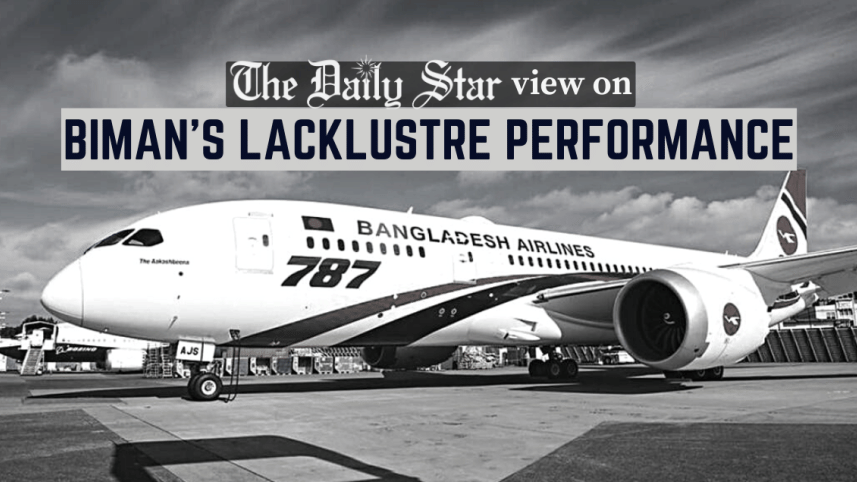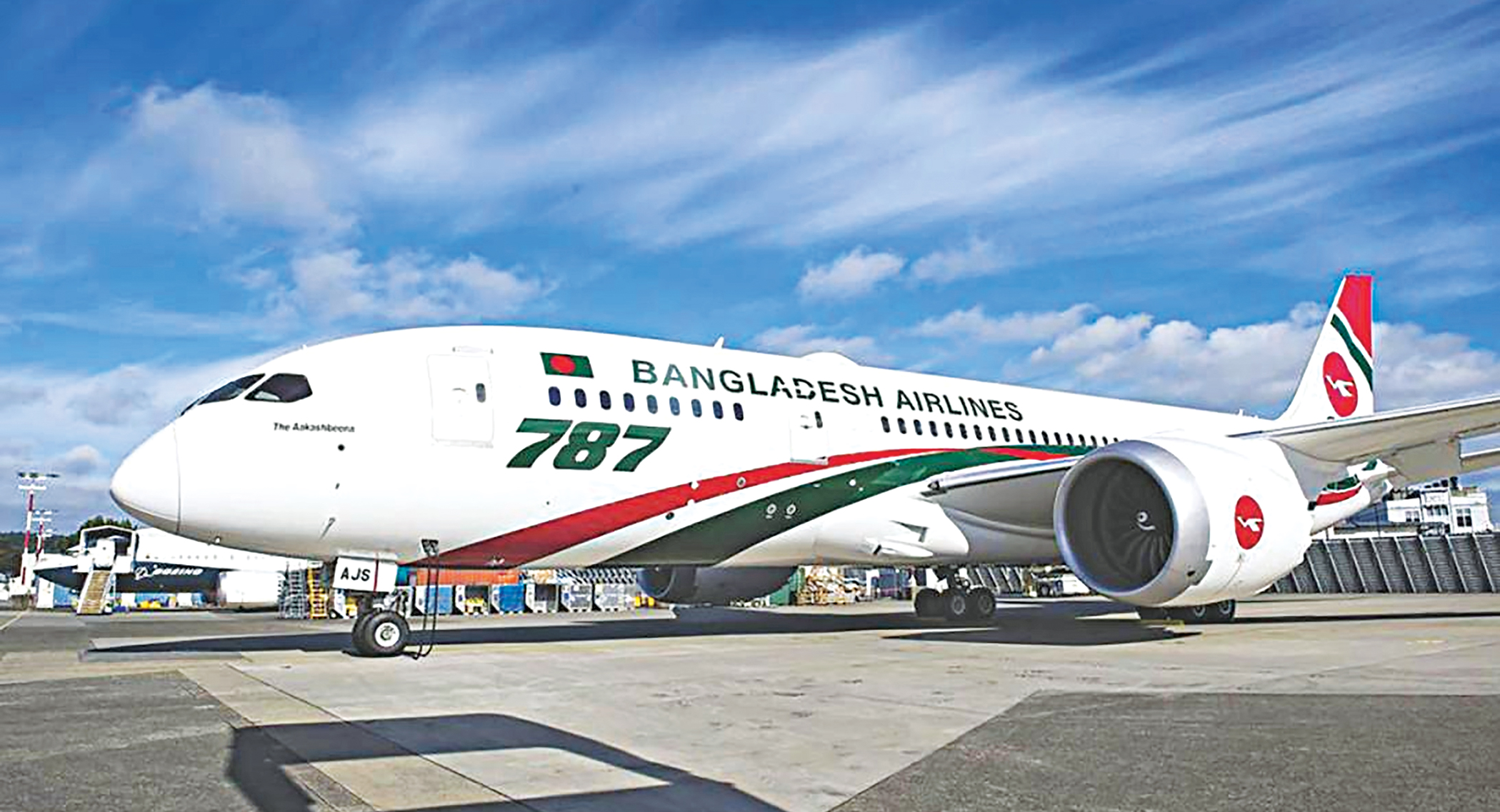Will Biman ever really take off?

Despite Biman CEO's promise of turning the national carrier into a "smart airline", in line with the prime minister's recently unveiled vision of a "Smart Bangladesh", it seems its operations are becoming slower and more cumbersome by the day. How else can one explain the fact that Biman – even with the largest fleet it has ever had in its history (with 21 modern airplanes) – currently flies to 20 mostly short- and medium-haul international destinations, whereas, with fewer planes in the early 2000s, it used to fly to 29 international destinations (including New York, Tokyo, and several major European cities)?
In the last five years, Biman has expanded to only three new destinations. Its new aircrafts are underutilised, its market share is shrinking, and its services leave much to be desired – leading to the predictable result of losses in almost every fiscal year since its inception. Even in the years that it didn't incur a loss (two in the last five years), what it achieved could hardly be counted as profits, since the airline owes over Tk 3,500 crore to different organisations and pays instalments of around Tk 250 crore for the new planes every year.
According to aviation experts, lack of planning and poor marketing policy are to blame for this. But events from last year make it clear that the trouble runs much deeper. In November, the story of a Biman recruitment scam broke, with allegations that a top official was involved in the leaking of question papers for new hires. A few months before that, this daily reported on Biman's hiring of "controversial" and "underqualified" people as pilots and co-pilots, which certain aviation officials alleged were in violation of Biman's own recruitment policies.
And in September, nine out of 15 female cockpit crew members alleged that their bosses in training and scheduling departments discriminated and harassed them, so much that it even jeopardised flight safety on at least one occasion. However, no concrete steps have been taken by the relevant authorities to address any of these issues. Last year, Biman's poor ground and cargo handling services also led to a Gulf Air plane being damaged, and a Biman Boeing rammed into another of the carrier's Boeings and damaged it. In fact, Biman's reputation in this regard is so poor that the Civil Aviation Authority of Bangladesh has passed over Biman in favour of an international firm for this job at the new airport terminal.
Unfortunately, such irregularities and failures seem to have become the norm, even though as our national flag carrier, we expect the highest level of professionalism and integrity from Biman. The question is, how long can it continue to justify this sorry state of affairs? It is clear that Biman needs critical reforms, and for that it needs to acknowledge its problems first, not throw around feel-good pledges like that of a "smart airline" without any action plan to achieve that. We urge the higher authorities to establish discipline and accountability in how Biman operates, so that it can become profitable and worthy of customers' expectations.



 For all latest news, follow The Daily Star's Google News channel.
For all latest news, follow The Daily Star's Google News channel. 
Comments